- Home
- Sarah Hall
The Beautiful Indifference Page 5
The Beautiful Indifference Read online
Page 5
It is fair to say that since arriving in the city you’ve been noticing details. You’ve been gathering them up, storing them away. You’re a receptacle for information. This is a new disposition for you – this vacancy. Always before you felt full, heavy with what had made you and who you were. You wonder if it’s a prerequisite for living in the metropolis, the scraping out of past existence to make way for a new, enormously complicated one. You are a recent settler. You’ve come down from the far north. You’ve left behind the yellow moors and drenched fields. You’ve left the people who know you, who have reared you, inured you.
It’s not work-related, this move; not a new job, that which beckons most rural emigrants. You’ve come away from your old home for another reason, a reason you imagine to be prosaic, here in this cauldron of life. You’ve come to forget, to move on. And with this move, some lurid internal part of you has unzipped your flesh and stepped outside. A red, essential thing. You felt it go. It happened as you were getting off the train in Euston station, standing on the platform and reaching back into the carriage to collect your suitcase. There was a sudden internal event, like cramp or a stroke, like waters breaking. Something rose up inside your chest. It split you open. It tugged itself through the walls of muscle, slid to the floor and moved off into the crowd. What’s left now is a loose pink sack of human being, bearing your name and your forgettable history. A skin bag with a few organs and some blood slung in; viscera, which cooperate only to the extent they must, in order to keep you alive. In truth, it’s a relief. This downgrading of self. This degeneration. You don’t ache or feel hunger or long for anything. You don’t mind going without that prime red aspect. You have been granted mercy.
You shuffle around on your knees in the garden, place your hands down and lean forwards. There they are – the bees. They are strangely composed. They seem to have collected in groups, selected communal places in which to expire. You pick one up by a crooked leg and place it in the palm of your hand. A dry bristle. Teasel. Half-burnt paper. What is it that has killed them? Is it something to do with infected hives? Mites in their throats or pesticide? Is this the beginning of the holocaust that will lead to the death of grass and cattle, the collapse of the pollinated food chain?
You’re lucky to have the garden, of course. You’re lucky to be where you are now. It could all have been very different. A bedsit in Hackney: depositless and rank. A doorbell rung, suitcase in hand, the rationale that your one retaliatory indiscretion months ago may have resulted in meaningful fondness of some kind. The man in the doorway looking at you, trying to remember, and his girlfriend calling from the kitchen, Honey, who’s there? You’ve landed softly in the hardest of all cities, with only a few possessions, just what you could carry, and a freshly gutted body. Your oldest school friend took you in, her flatmate moving out just when you needed a room. You paid two months’ rent up front, though she said you could owe her. You didn’t flinch over the price.
She’s another northerner, this friend, from the same soaked valley but one village over. You’ve kept in touch with her since school, to some degree or another, depending on each of your situations year in, year out. In school you were good friends. You would go out in the local town at weekends. She was pretty but never as lucky with boys. Once the two of you got drunk and kissed but it was a moment so unreal you’ve never talked about it; you might even have invented it. She did well in school. She’s a professional now and her dialect’s been rounded off, softened at the edges. She works in the publishing industry, marshals authors from one event to another, puts up with egos and tantrums.
You visited her a few times prior to moving, though it was hard getting away from the farm – you had to use Christmas shopping as an excuse – and you blew off steam down here. You always liked visiting the city. You liked the throngs of people, the anonymity, the lattices of wires and trains, the energy. While down here you complained about the pettiness and insulation of the Borders, said you wished you’d left when you’d had the chance. You can still come down, she told you. People do it all the time. You shared fond memories of school and fell walking, old men’s pubs in the villages, lost boyfriends, the ones you lost your virginities to. You filled her in on local gossip, what such-and-such was doing, who such-and-such was screwing. You cried, and, wordlessly, she comforted you. She came to your wedding, ten years ago. She saw the whole thing, the overturned table and the broken glass. She knows about the circumstances of your moving here, but only as much as you’ve conveyed. She’ll not ask more. She’ll wait for you to broach the subject. She’s from the north.
After the great heathered fells, the watery expanses and the lowlands of your home county, this garden seems tiny, condensed. There’s a bench, on which you are now sitting with a dead bee in your hand. The bench is being molested by untrimmed bushes, buddleia, you think, though you’re not good at recognising such plants. A Mexican pot-bellied stove sits up at the top end by the kitchen window. There’s a bird table. Plant pots. These things belong to your friend, who has been in the city for almost twelve years, long enough to make it her home, long enough to acquire possessions and a good social circle. She has secateurs, a trowel, packets of broom and violet seed. She tends the garden to relax after work. But her hours are long, she often has to go out in the evening, to festivals and launches; she is away much of the time. You have the place to yourself, which is good, in a way. You’ve been out into this cultivated pocket of nature quite a few times. Mornings, to catch the hazy sun as it breaks free of the rooftops. You’re not yet working, though soon you will have to find a job. You’ve had glasses of wine out here at the weekend, with your housemate: she’s keen to give you company when she can. It’s then she tries to tell you it’ll be all right, her propositions brief and unassailable. You always nod. Yes, it’s for the best. Yes, there’ll be others. Yes, you are in your prime. You’ve been out here at night when you can’t sleep – the bed still feels strange, sleeping alone still feels strange – or to cool down, London’s summer being more humid than you’d expected. And you’ve also come out to investigate the nocturnal barking and rummaging, the eerie yowling, noises that seem out of place in this urban setting but to which you are attuned. The moon in the city is vast and unwhite.
These are the moments when you wonder whether coming to London was the right thing – these disturbed, sleepless moments. The north seems close, connected as it is by darkness and light, by bitter constellations. It’s been difficult to reconcile the permanence of this change. It’s been difficult to let go, to forget entirely. At night, in the garden, it occurs to you that it might have been your heart that left you as you reached the capital. Your heart might not have travelled well, closed up in its cavity, quivering and gnawing at the bars of your ribcage during the commute. It might be tracking north now, along edgelands, past spoil-heaps and stands of pylons, under motorway passes, back to the higher ground. Back to him.
During the day you go into the city because it’s a place you’re supposed to go into, now that you’re a resident. You encourage yourself to learn bus routes, find groceries, independent cafes. You go to galleries and shopping districts. You share the pavement, walk with or against the crowd. Sirens. Traffic. Planes. There is such different choreography from that which you are used to, the slow machinery in the black fields, livestock cropping the tufts, your once vernacular scenery. You’ve some money and a credit card that has not been stopped. Soon you’ll find employment, probably quite menial; you’re not highly qualified, but for now you’re acquainting yourself with London, distancing yourself from the time before. It is a faceted city: ornate, sooty, modern. You aren’t afraid of it. You note things, place details on a cerebral shelf. You memorise noises, chimes, electrical thrums, the euphonic character of the place. And smells: the stale pavement, body odours, doorstep musk, green ponds. There are underground winds, motion sensations, beeps, commands. Your head has begun to fill with urban miscellanea, civic clutter, like keen junk.
But this waste of bees is unexpected. You’re interested in the particularity, the mystery. You stand up from the bench and drop the little carcass from your hand. You walk about the garden, your eyes cast down, wondering what kind of disease might have decimated their community. There were those terrible rains shortly after you first came, that swelled the Thames and the Victorian sewers past capacity, that bloated fish and sent them up, silver-bellied, to the surface of the brown surge. You don’t understand the natural calibration here, not in the way that you know fell ponies graze the uplands in summer and riverside in winter, sheep will remain hefted until struck off, and the swallows come back in April, feeding on the wing above bright streams. In the garden you tread around the bodies carefully, agriculturally. Then you go back inside the house.
The days pass; warm, sticky summer days. There are thunderstorms. The sky above London turns purple, then grey. Rain sluices from gutters and culverts, spills from eaves. The storms pass, the dark patches in the roads shrink. You go out on a few dates. These men are used to dating. You are not exotic. One night you go home with a man and you fuck him. Or, you let him fuck you. He does it hard so as not to lose his erection. Halfway through he withdraws and asks if he can take off the condom. You say no. Then you say yes. Two days later you come down with a bladder infection. You go to a clinic for antibiotics. It takes hours, by which time you are urinating blood. For a week or so you think about going back to the north. The regret passes. You sit outside in your shorts and a vest. The sun is strong, liquefying. You relax. The garden remains littered with bees. You never see them dying. You don’t see them tumbling from the sky, or twitching on the ground, pedalling upside down on their backs, their frail wings vibrating into stillness. They are simply corpses. All you witness is evidence of their extinction.
You go into the garden more frequently. You watch the ones that are alive, moving like Zeppelins in the air, scooping inside the flower heads. There are plenty. They seem oblivious to the bodies underneath. It is business as usual. When you are inside the house you pause at the bedroom window and look out, in case a clue might present itself. You go down to the library by the park to gather information about apiculture. You read about dangerous breeding techniques in America – the weakening of certain species. The almond industry, bees flown in on jumbo jets to pollinate. You read about particular kinds of beetles that burrow in under the eggs and attack juveniles. Bees are highly cooperative. Any sickness, any threat to the queen, is dealt with immediately. They will sacrifice themselves, clean out infected combs with their mouths, fly as far away as they can before dying. But you’ve looked over the garden hedges and fences along your street, even in the allotments nearby, and there are no hives.
You arrange interviews. You move your voting registry, put your name on a waiting list for a GP. You know you live in London now. You still feel empty. And you still wonder about that red thermal mass. All the anger and desperation and love that was furled up inside you, making you wild for the last few years. Where is it? Sometimes you think it can’t have gone far; must be roaming London, scorching and singeing the undergrowth as it moves. Or is it in your old home, back in the house that you shared, with its slippery courtyard and hay-smelling outbuildings? It could be curled up in front of the coal stove next to his dog, or staring out of the front door at the Scar as the authentic rain comes down, or bumping about in the passenger seat of the Land Rover, driving into town. You wonder about him, what he’s doing. If he’s managing. If he’s thriving. If he’s sorry. If he knows that he might still own your busted-out incendiary heart, and that you’re turning through this new life as uselessly as a shed tractor tyre.
As you get ready for your first interview you look at your face in the bathroom mirror. It’s lined along the brow, around the eyes, at the corners of your mouth. It’s the face of a person who has spent time outdoors, in all weathers. But you have always made an effort with make-up and you are attractive. Once you were considered very attractive. You were his prize. You aren’t old for this city, where youth stretches out into middle age, where people don’t commit or own mortgages or cars. You felt older in the countryside, comparatively. Old in your hometown, where women the same age had children already sitting exams or getting pregnant themselves. You have no children. You might have had children. You were at risk of having them young. But you didn’t want to, even though he did. He said it was the right thing to do. He imagined extra hands to help around the byres, a son to come to the pub with on Christmas Eve.
But something in you stalled. You resisted. You kept taking the pill, every day, 6 a.m. And you had one abortion, secretly. You took the tablets and wore an incontinence pad and slapped the paleness out of your face and went to the pens to help with the clipping. It wasn’t even about him, the decision, though you could have set it against his temper or his drinking, his heavy-lashed eyes that were cast over the rumps of other women, and his dirty nails that must have dug into them too. You just didn’t feel broody, didn’t feel the inclination, that ache in the space between your arms. You never saw through a full conversation about it either, you always made an excuse. The dogs needed feeding. You had an appointment in town. Talk about it later.
But you never said no when he wanted to. You maintained an active sex life, from the last year of school until that sore red ember began to glow. He liked you to unfasten his blue boiler suit and pull it down off him. He liked you on your knees, on the floor, liked to put his hands against the wardrobe and look in the mirror, at your head moving, at his length and the hard muscle in his stomach. You can remember the taste of him now, from years of practice – sour, salty. Yeah come on, swallow me. You’re a good bitch. You can remember the smell of silage and diesel in the farmyard, the feel of him butting behind you, increasingly minimal in his inquiry, complaining if you weren’t wet enough, pulling out and moving it into a tighter place. A bonny pair: that’s what they called you. Best match of the town. You knew what it meant, to be with him, to be his. You signed the contract.
And he breached it. A slap or two to begin with. Public argument, things that couldn’t be unsaid. An infection passed on, him saying it was you not washing properly. Then the rumour, the pregnancy, the local slut. It lit you inside and smouldered your innards hotter and hotter, until the bloom got livid. But you bore it, kept it in, even seeing that other woman round town, yes pregnant, being called frigid outside the Rafa club when you tried to take him home, the tenderness at the back of your throat from choking on him, being forced to. You bore it, until you couldn’t bear it any more. The one-year-old daughter – paid for informally, you found out – black-lashed and beautiful just like her father when you finally saw her. You initiated a confrontation with him. And got one. And the police too. One of whom was his cousin, who filed a dodgy report. The courts were not involved. Hard times for farmers. Work stresses. Mitigating circumstances. You packed a bag, got the money out, and left. He’s not come down to find you, with his shitty wellies or apologies or demands. All that remains between you both is that historical red piece that clawed away and is missing somewhere now, that urgeful hybrid creation, carrying flames along its back as it moves. You look at your face in the mirror. Still attractive. You wonder if you’ll ever be able to use your body again for more than basic living.
You don’t get the job. There are one hundred and sixty other candidates. They tell you as soon as you’ve interviewed that you are under-qualified. They suggest taking some unpaid internships, though the competition for these is also fierce. You go home. Your friend is away overnight at a festival. You open one of her bottles of wine and sit in the garden and drink it. You sit on the bench and look at the dead bees. You collect a few and put them on the seat beside you, arrange and rearrange them. You sit for a long time. The moon is dilated. It is enormous. A supermoon. It is as close to the earth in its orbital ellipse as it’s been for ten years. You know that the Solway tide will be affected. The haaf-netters will not go out and tread the sands. There will
be curious minor occurrences. A dead hawk, perched upright on a fence. Lame cattle. You finish the wine. You watch the moon set. You lie down on the bench and sleep.
In the morning the sun is warm. Your head hurts. Your neck is stiff from lying on the wooden slats and your arm is completely numb. You have slept for only a few hours. Carefully, you sit upright. Then you see it. There, in the corner of the hedge, is a disruption of colour, perhaps ten feet away from where you have been sleeping. You think at first you must be mistaken. But you are not. It’s a fox. It is a rust-red, blaze-red fox. And it’s big, though it seems juvenile, with oversized ears and paws. It’s sitting upright, arch-jawed, snouty, and is scanning the garden with brilliant topaz eyes. You hold still. You try not to make any sounds. It is not looking at you, though it must sense you are close, must have assessed the degree to which you are or are not a threat. You are tolerable. It’s looking at something else. Your housemate told you there were foxes in London, lots of them, brash urban scavengers responsible for tearing open bin bags, pungently scenting their patrols, so tame you could almost play with them, but you didn’t really believe they were so fearless.
You’ve only ever seen foxes in the north before. There they were pale orange and discreet, sloping along roadsides, diminutive on the moors, or cowering from the hounds. This one is unapologetic, going nowhere, as if it owns this city enclosure. It is as if the creature has been stoked up from the surroundings; its fur like a furnace, eyes sparking. You watch it scan the air. It follows the heavy, resinous flight of a bee. It is a candid little hunter. It crouches for a moment, then springs up on its back legs. The jaws open and snap shut, and as it lands it shakes its red head furiously.

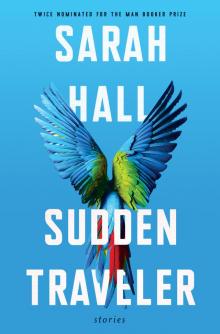 Sudden Traveler
Sudden Traveler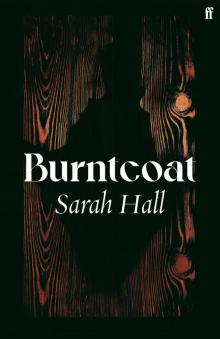 Burntcoat
Burntcoat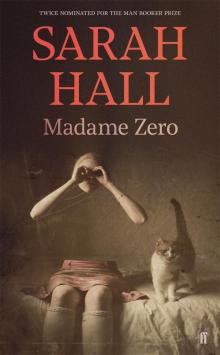 Madame Zero
Madame Zero Mrs Fox
Mrs Fox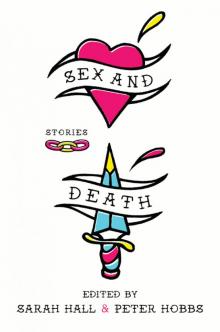 Sex and Death
Sex and Death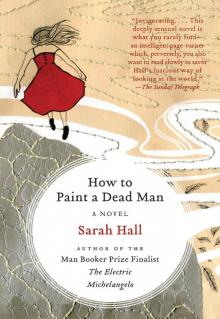 How to Paint a Dead Man
How to Paint a Dead Man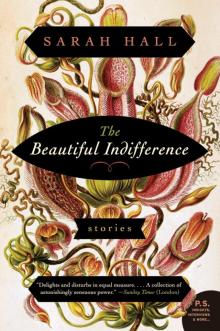 The Beautiful Indifference
The Beautiful Indifference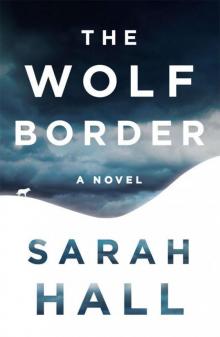 The Wolf Border
The Wolf Border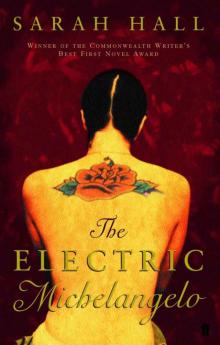 The Electric Michelangelo
The Electric Michelangelo